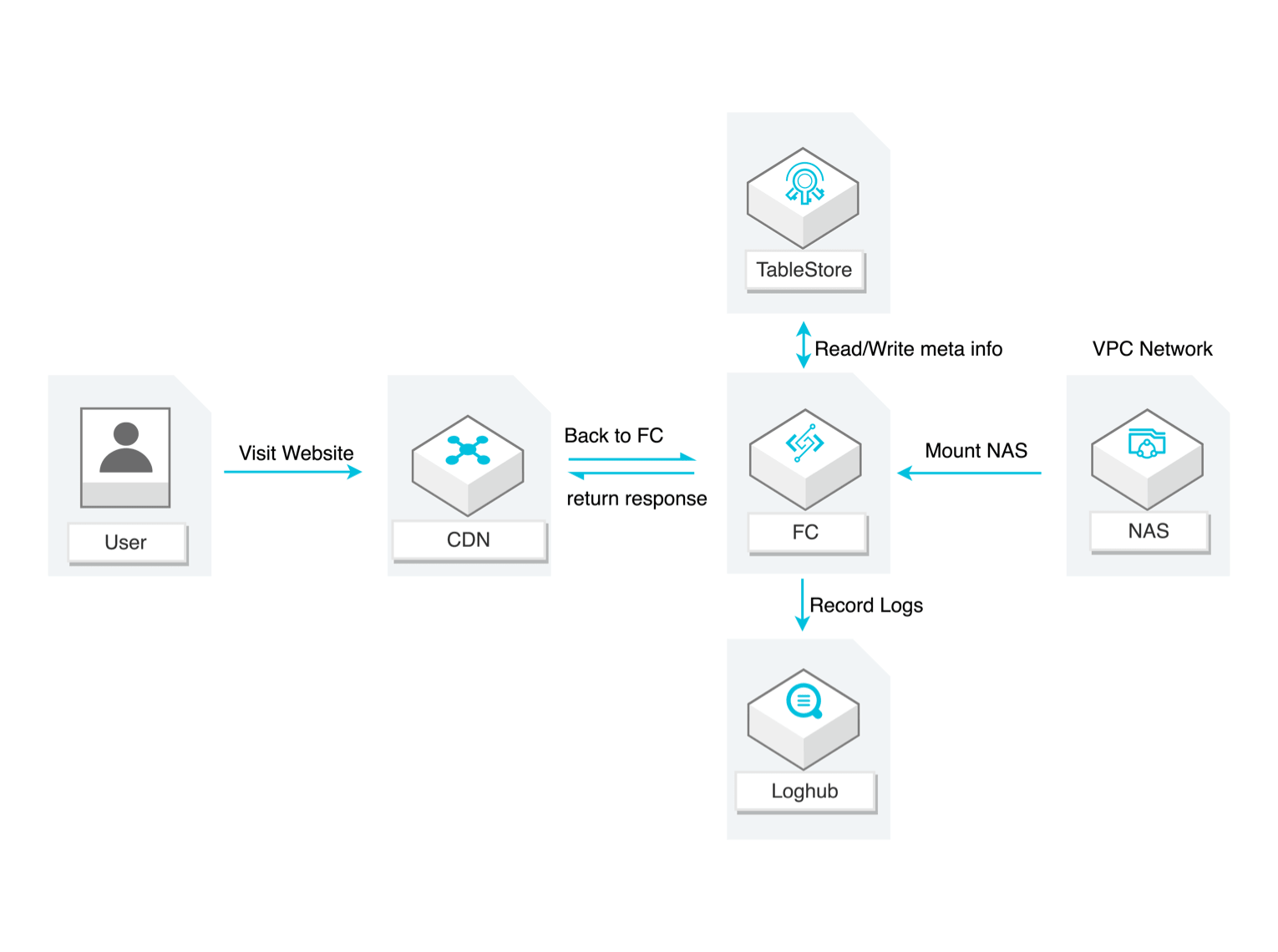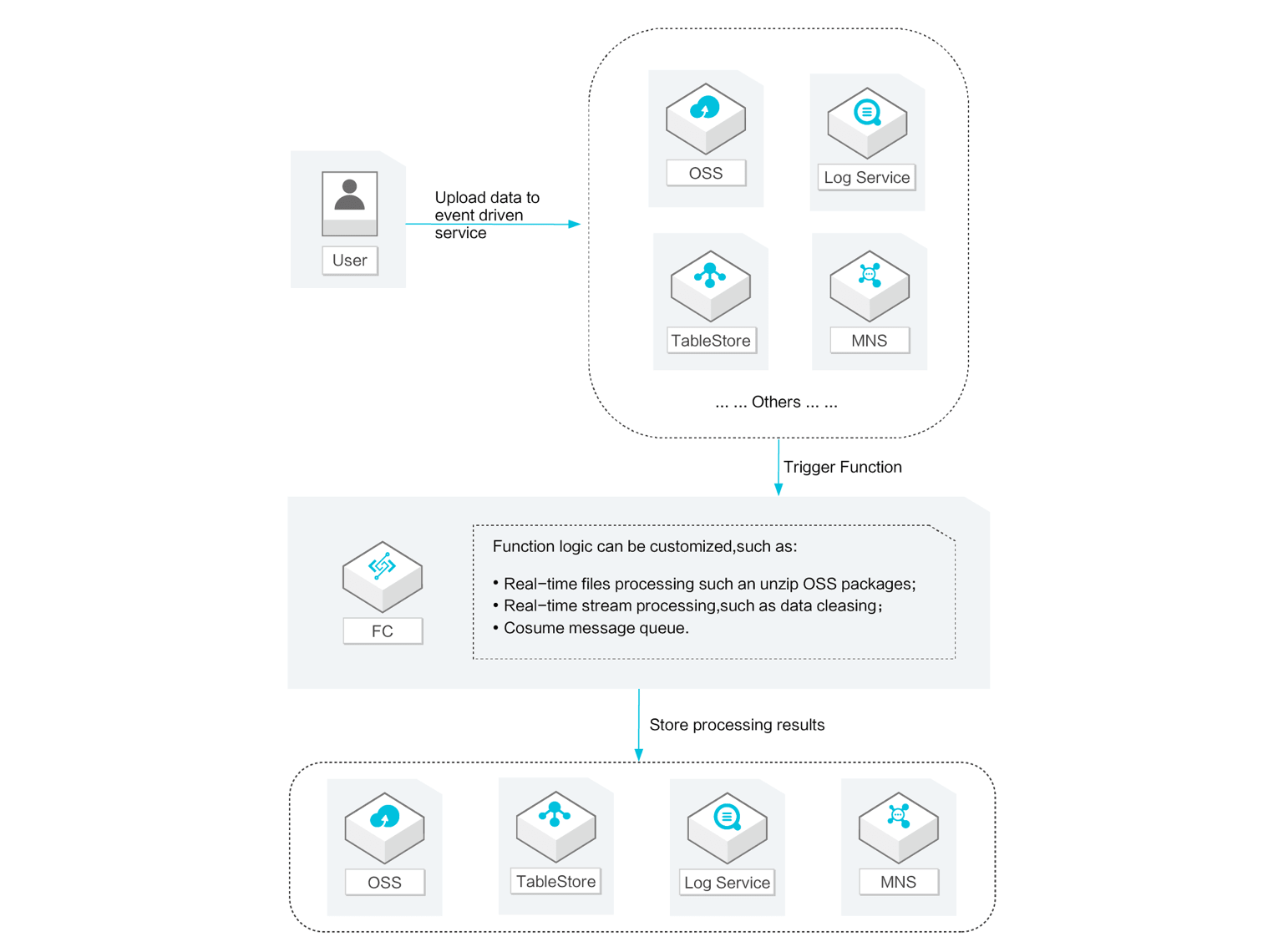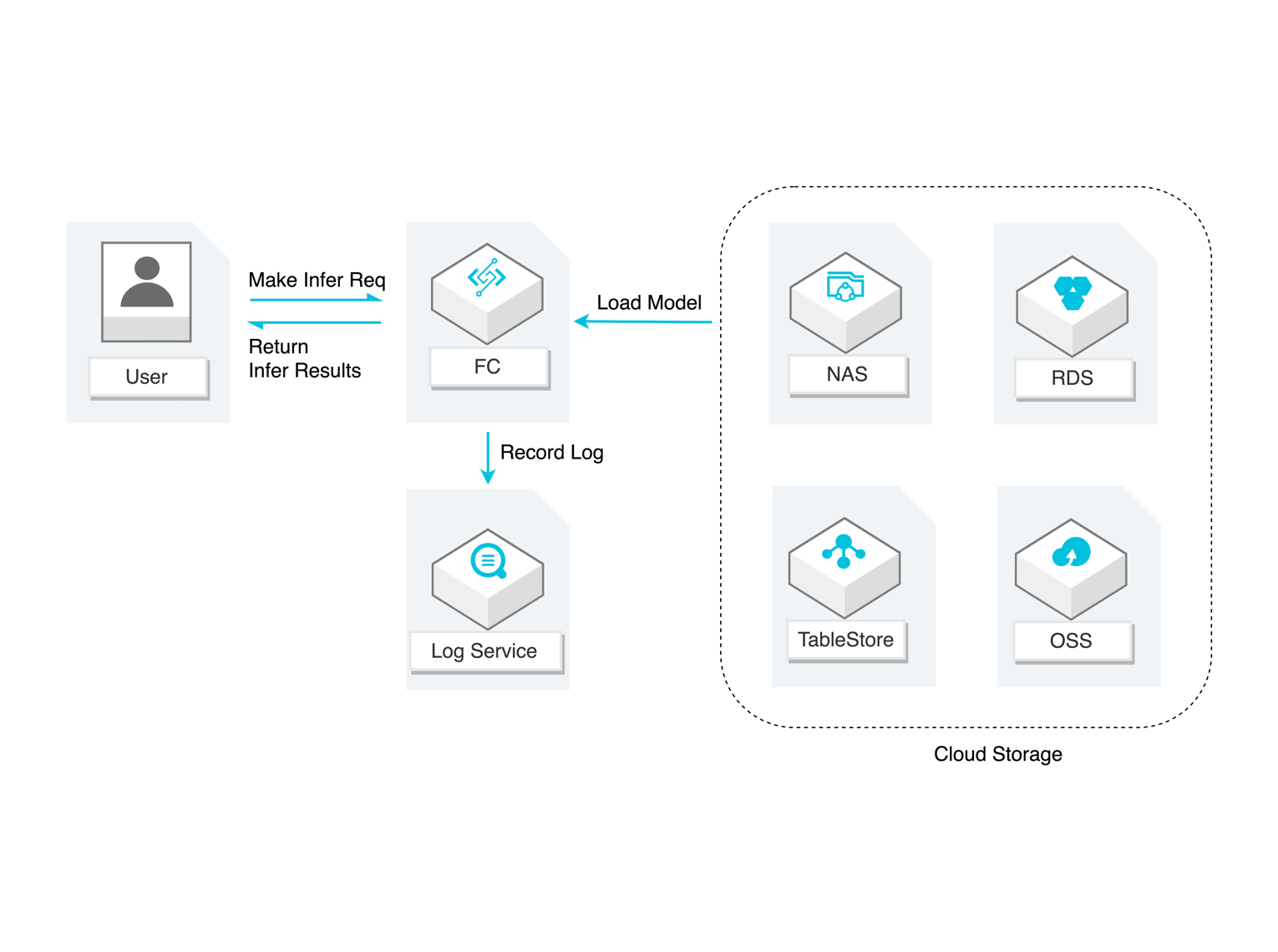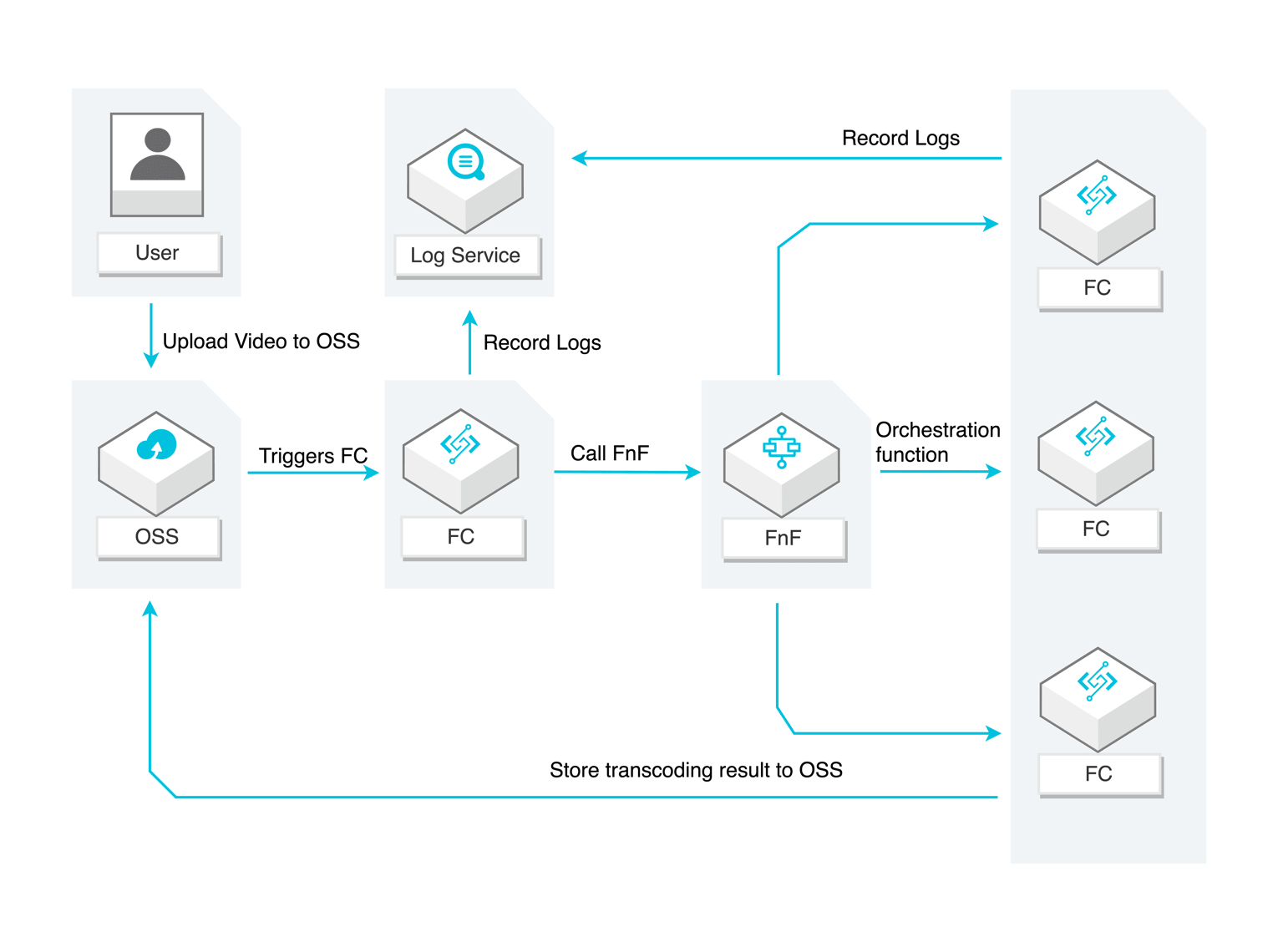Alibaba Cloud Function Compute is a fully managed, event-driven compute service. Function Compute allows you to focus on writing and uploading code without having to manage infrastructure such as servers. Function Compute provides compute resources to run code flexibly and reliably. Function Compute provides free trial quota for the first-time users of Function Compute. Users who activate Function Compute for the first time can obtain a free trial quota of 150,000 CUs per cycle for three cycles. Each cycle lasts a month.
Features
Services Integrations
Function Compute associates event sources with triggers. An associated event source triggers a function to execute either synchronously or asynchronously when an event occurs. The change event is passed as an input parameter to the entry function.
OSS Trigger
Automatically triggers function execution when bucket objects are changed.
Tablestore Trigger
Passes change information as an input parameter to trigger function execution when table data is changed.
Log Service Trigger
Regularly obtains updated logs and triggers functions for custom log processing.
MNS trigger
Writes functions to process messages published on topics in real time.
CDN trigger
Writes functions for customized processing of CDN events such as refreshing and prefetching.
HTTP trigger
Receives and processes HTTP requests as well as returns HTTP responses.
Time trigger
Triggers function execution at a specified time point.
EventBridge trigger
Route events to Function Compute by using event rules.
Kafka Connector trigger
Export data from a topic in the Kafka instance to a function.
Cloud Monitor trigger
Allows you to use monitoring events as event sources.
MQTT trigger
Export data to an HTTP function of Function Compute by using data outflow rules in the MQTT console.
More triggers
Programming Languages
Function Compute supports multiple programming languages and custom runtimes.
Node.js
Node. Js 20, Node. Js 18, Node. Js 16, Node. Js 14, and Node. Js 12 Are Supported. The Node. Js Runtime of HTTP Triggers Is Compatible with Express.
Python
Python 3.6, Python 3.9, Python 3.10, and Python 3.12 Are Supported. The Python Runtime for Setting HTTP Triggers Follows the WSGI Specification.
Java
Java 8 & Java 11 is supported. Java runtimes configured with HTTP triggers are based on the Servlet protocol.
PHP
PHP 7.2 is supported. PHP runtimes configured with HTTP triggers comply with the PSR standard (HTTP message interfaces).
C#
.NET Core 2.1 is supported. C# runtimes configured with HTTP triggers comply with .NET Standard 2.0.
Custom Runtimes
Customizes execution environments for multiple languages such as Go, Ruby, and Lua. Applications can be directly migrated to Function Compute by one click.
Custom Container Runtime
It offers developers a simpler experience and makes development and delivery more efficient.
More languages
Development Tools
Function Compute provides convenient development tools to help you smoothly develop, debug, and deploy applications in local environments.
funcraft
An application development tool for you to create resources, debug locally, and install third-party dependencies online.
fcli
It is a command line tool provided by Alibaba Cloud Function Compute to help you manage resources in Function Compute.
Visual Studio Code Extensions
The development, debugging, and deployment tools based on Visual Studio Code to help you create, debug, run, and deploy functions.
Serverless Devs
Serverless Devs is an application center that integrates online search, deployment, and visualized editing of serverless application.
Midway Serverless
A serverless framework used to build Node.js functions in the cloud, which helps you concentrate more on the product R&D in the cloud-native era, lowering maintenance costs.
Cloud development platform
A one-stop and all-in-cloud development platform oriented to developers and SMEs. Once you open the browser, you can develop, debug, and deploy online.
Various Resource Types
Function Compute supports a variety of resource types to improve computing performance.
Reserved Instance
Allows you to assign and release instances for functions. The always-on instances completely eliminate the latency glitch caused by cold start.
Pay-as-you-go Instances
Dynamically allocates instances based on requests to handle traffic peaks.
Various Instances
Function computer provides two instance types,Flexible instance and Performance instance.
Flexible instance
The maximum package size of a flexible instance is 50 MB. Functions in a flexible instance can run for up to 600 seconds,it provides free monthly tier.
Performance instance
It is an instance type that has higher specifications, don't provide free monthly tier.
Flexible Billing Methods
Function Compute provides flexible billing methods for a variety of scenarios to save costs.
Pay-as-you-go
You are charged for instances you have used.
Subscription
You can purchase computing powers based on estimated business load. The combination of pay-as-you-go and subscription instances effectively reduces costs.
Upgraded Support For You
1 on 1 Presale Consultation, 24/7 Technical Support, Faster Response, and More Free Tickets.

1 on 1 Presale Consultation

24/7 Technical Support

6 Free Tickets per Quarter













